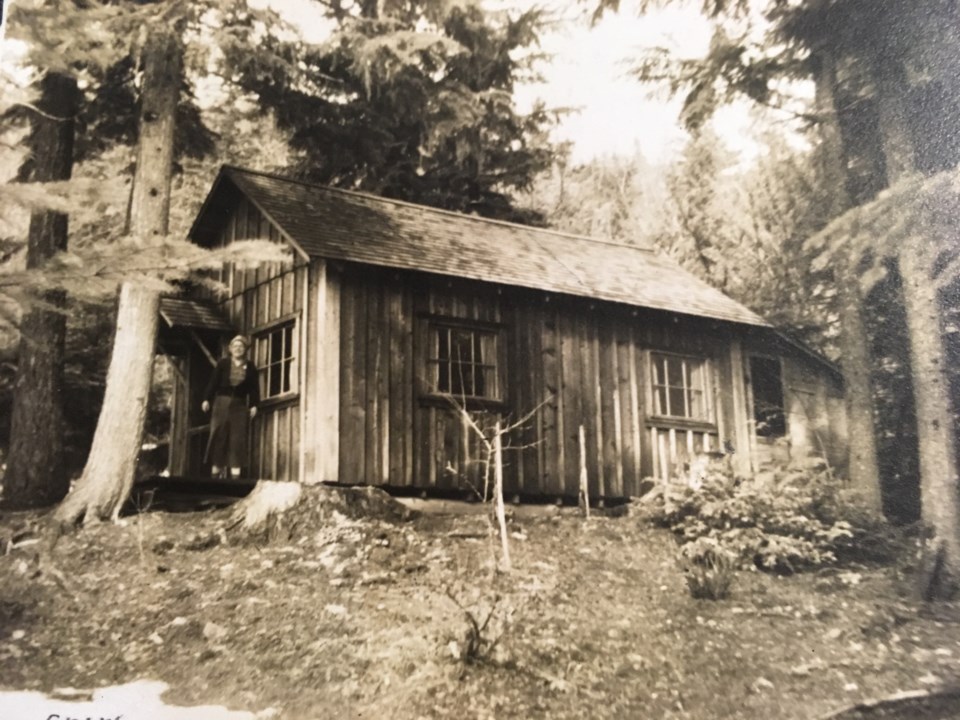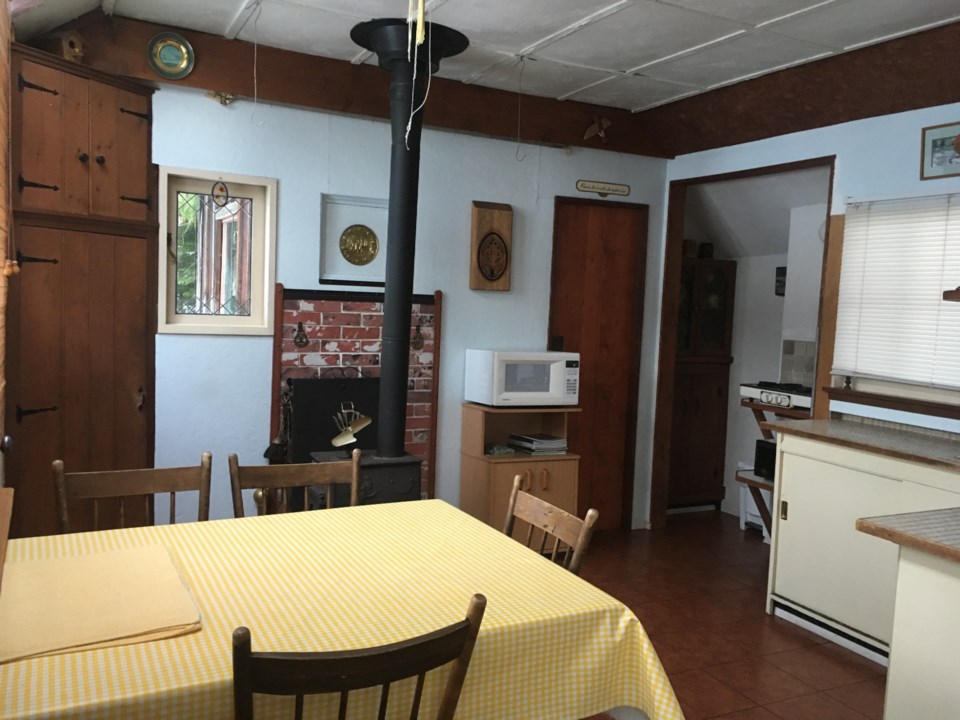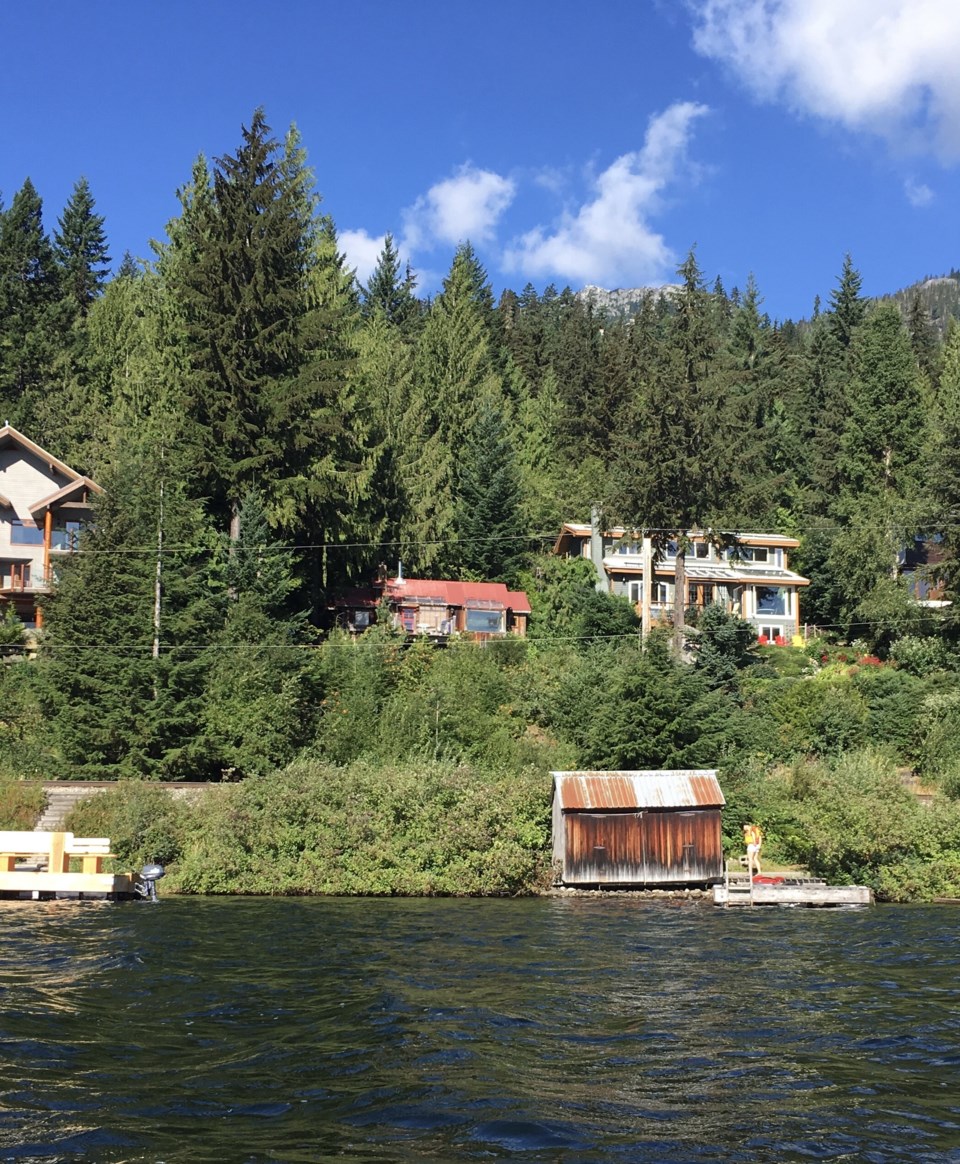
Greg Farley has lived in a lot of different places in his 65 years, but nowhere gives him the same feeling he gets whenever he returns to his family’s summer cottage on Alta Lake.
“I’ve done a lot of different things in my life, and I go back there, and it feels like home,” said Greg.
Built in 1943 by Bert Harrop, the namesake of Harrop’s Point, where the Point Artist-Run Centre sits today, the cozy log cabin at 5662 Alta Lake Road has now, with Greg and his brother’s children, been home to four generations of Farleys. Save for a propane furnace and crank telephone that were eventually installed, the 500-square-foot building has remained virtually the same over all those years.

“I don’t know how to describe the feeling, but it’s pretty cool to have something in your life that doesn’t really change,” said Greg, who first came to the cabin as a baby in 1955.
Greg’s grandparents, Frank and Hilda, had rented a small log cabin at what was then Jordan’s Fishing Lodge in the summer of 1943 when a man by the name of Mr. Noble approached Frank, a home builder in Vancouver, to purchase his lot adjacent to the PGE Railway townsite for $400. The only caveat? The small guest cottage on the site had to be relocated off the property. So Frank took the building apart piece by piece, dragging them downhill to be reassembled on a nearby lot—next door to Alex and Myrtle Philip, some of the earliest settlers on Alta Lake.
Whistler Museum director Brad Nichols believes it to be among the oldest residential buildings remaining in the resort.
“If it was built in the ‘40s, that’s when you start to see more summer residences start to come up. Before that, it was a lot of lodges or people that were working in the forestry industry,” he explained.
“There aren’t very many buildings that still exist pre-ski hill.”
Needless to say, life was much different then for the few intrepid souls who chose to set down roots in what was then essentially a small fishing and logging town. Back then, Greg and his brother would have made the nearly daylong trip from the city in the Way Freight Caboose, and Greg still remembers unloading crates of food and supplies shipped from Vancouver by the very same train.
“We’d row our boat down to Alta Lake Station, which doesn’t even exist now, and we’d get this big box of food, like cans and stuff that we’d get from Woodward’s in Downtown Vancouver, and they’d bring it out of the car and we’d drive it down across the tracks, put it in the rowboat, row down the lake to our place and then carry it up,” Greg recalled. “It was a very different time.”

For Greg, who has skied here every year since Whistler Mountain first opened back in 1966, it’s more than just the resort’s physical footprint that has transformed.
“I tell you something about Whistler in the past: People relied on each other. People were friendly,” he recalled. “Now, I go up to Whistler and say hi to my neighbours and some of them don’t even say hi back to me.”
The Farleys’ cabin—which welcomed Greg’s mother Shirley and his 100-year-old father, Ken, one last time in the summer of 2019 before Ken’s passing several weeks ago—has largely remained frozen in a bygone era, while the hypermodern ski resort of Whistler has evolved at lightspeed around it. With all that change, of course, has come more tourism, more development and more money, no amount of which could inspire the Farleys to sell such an important part of their family’s history.
“I go back and I see things that my grandfather did there, I see things my dad did, I see things my brother did,” Greg said. “For me and my family and my brother’s family, it’s a connection to a place that’s about more than money. The money doesn’t mean anything to me.”



